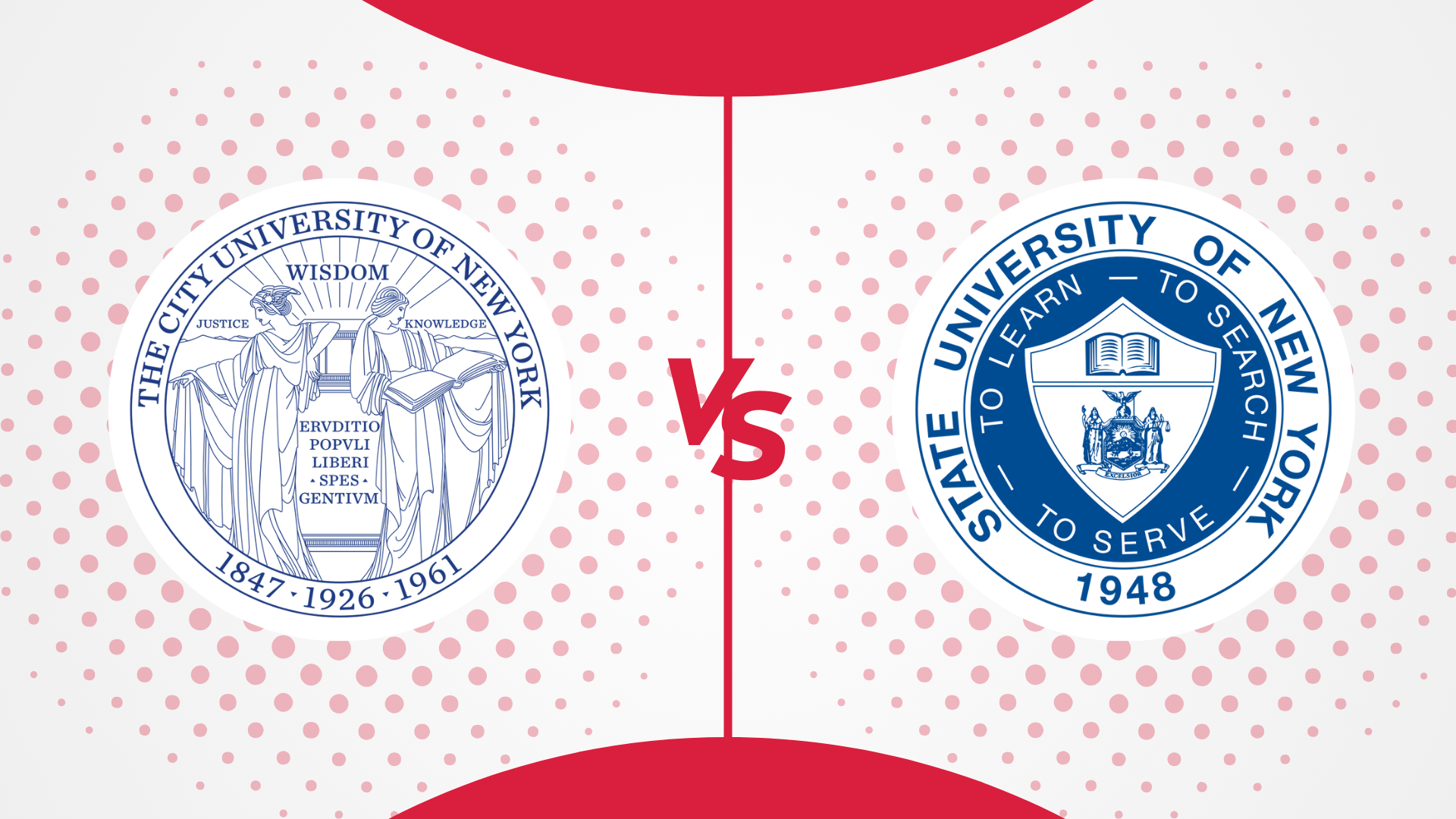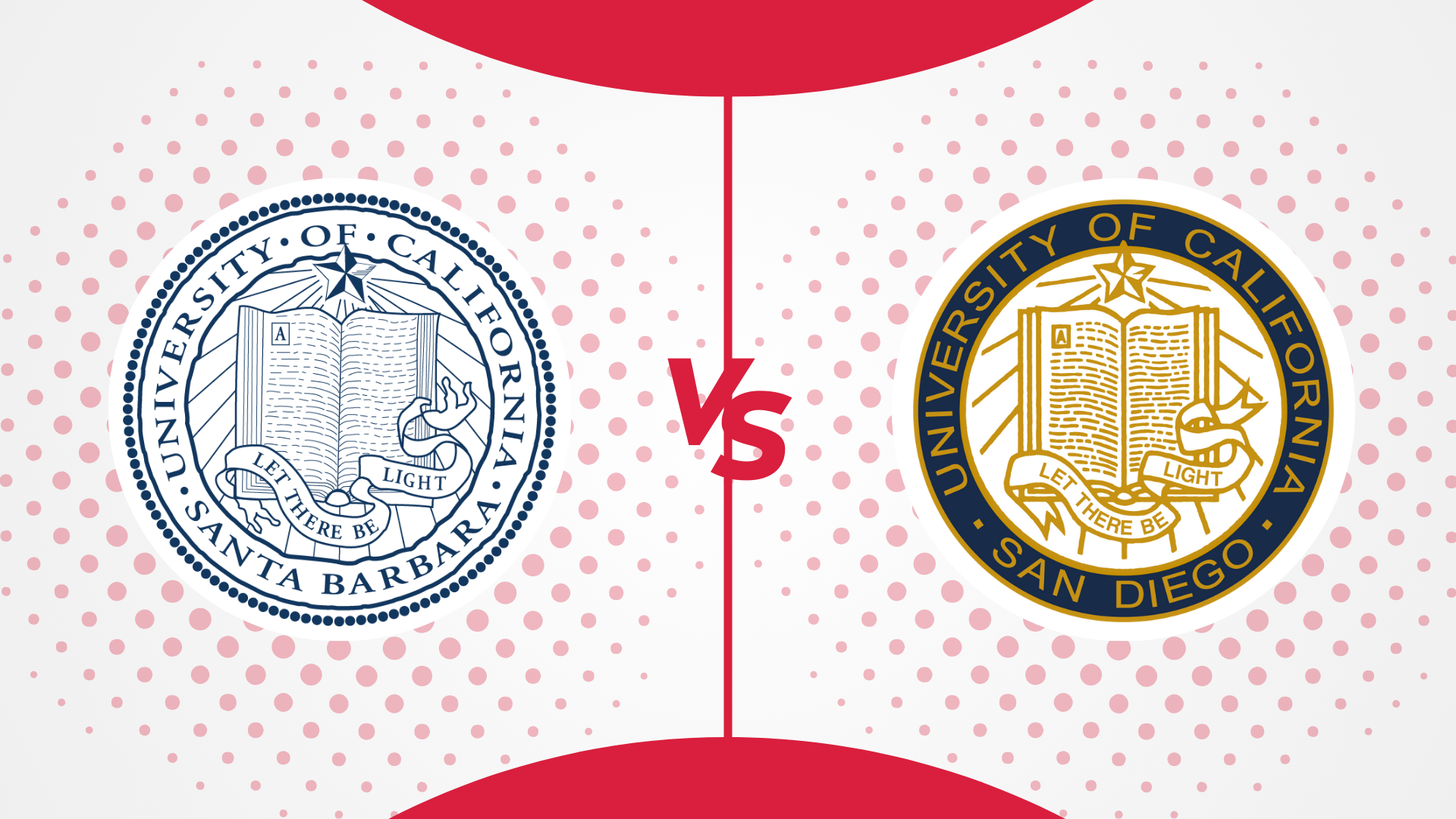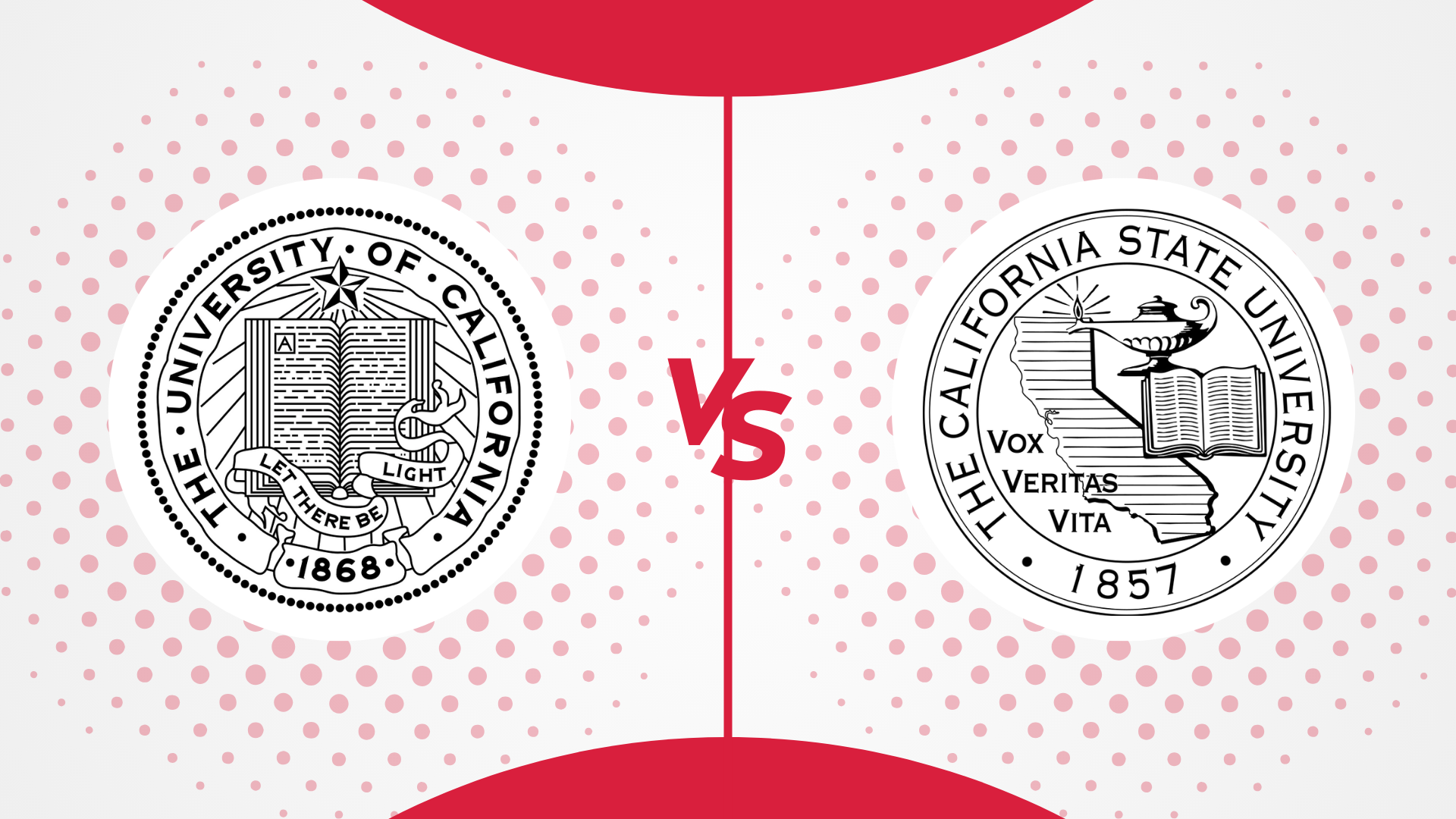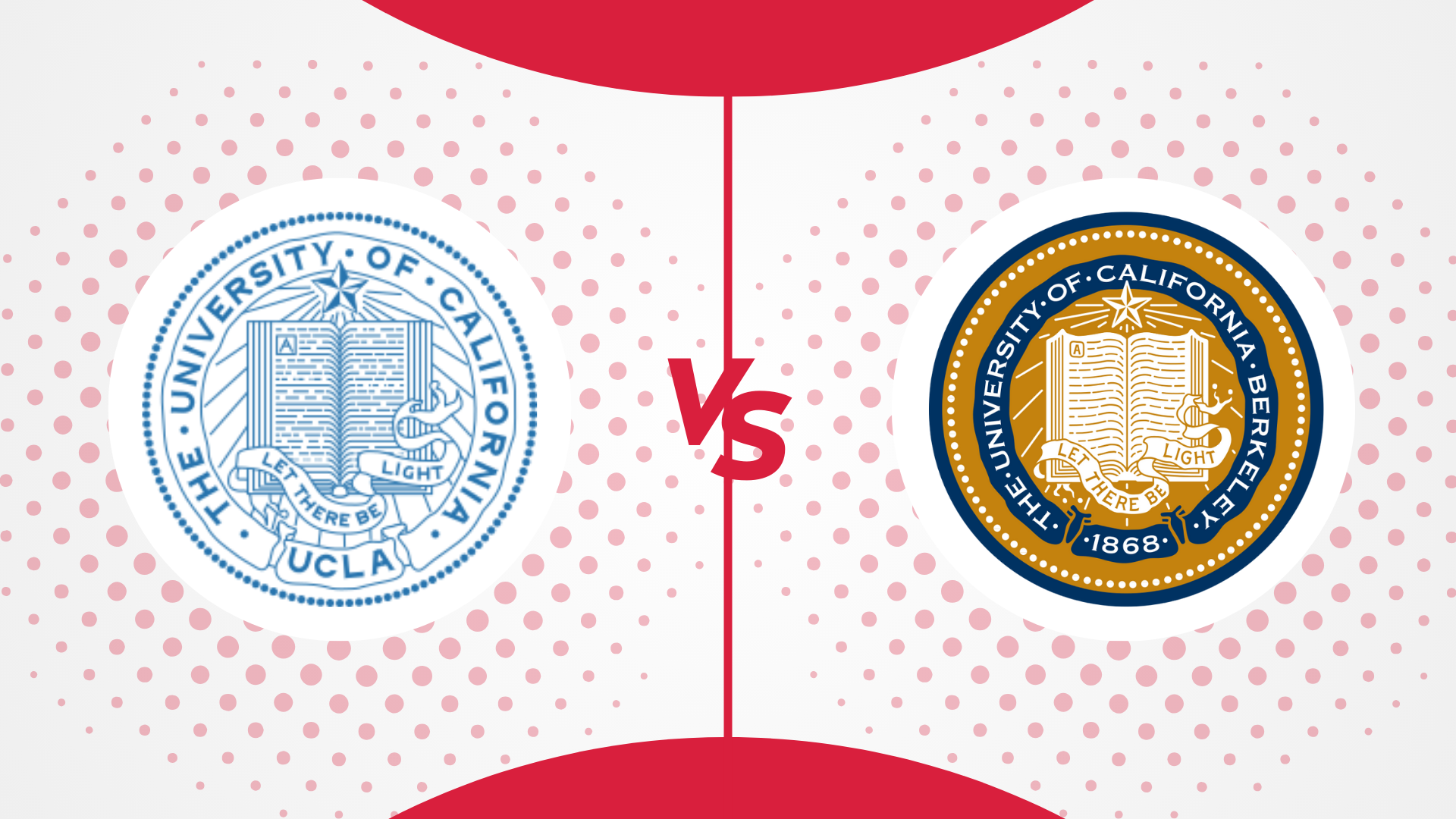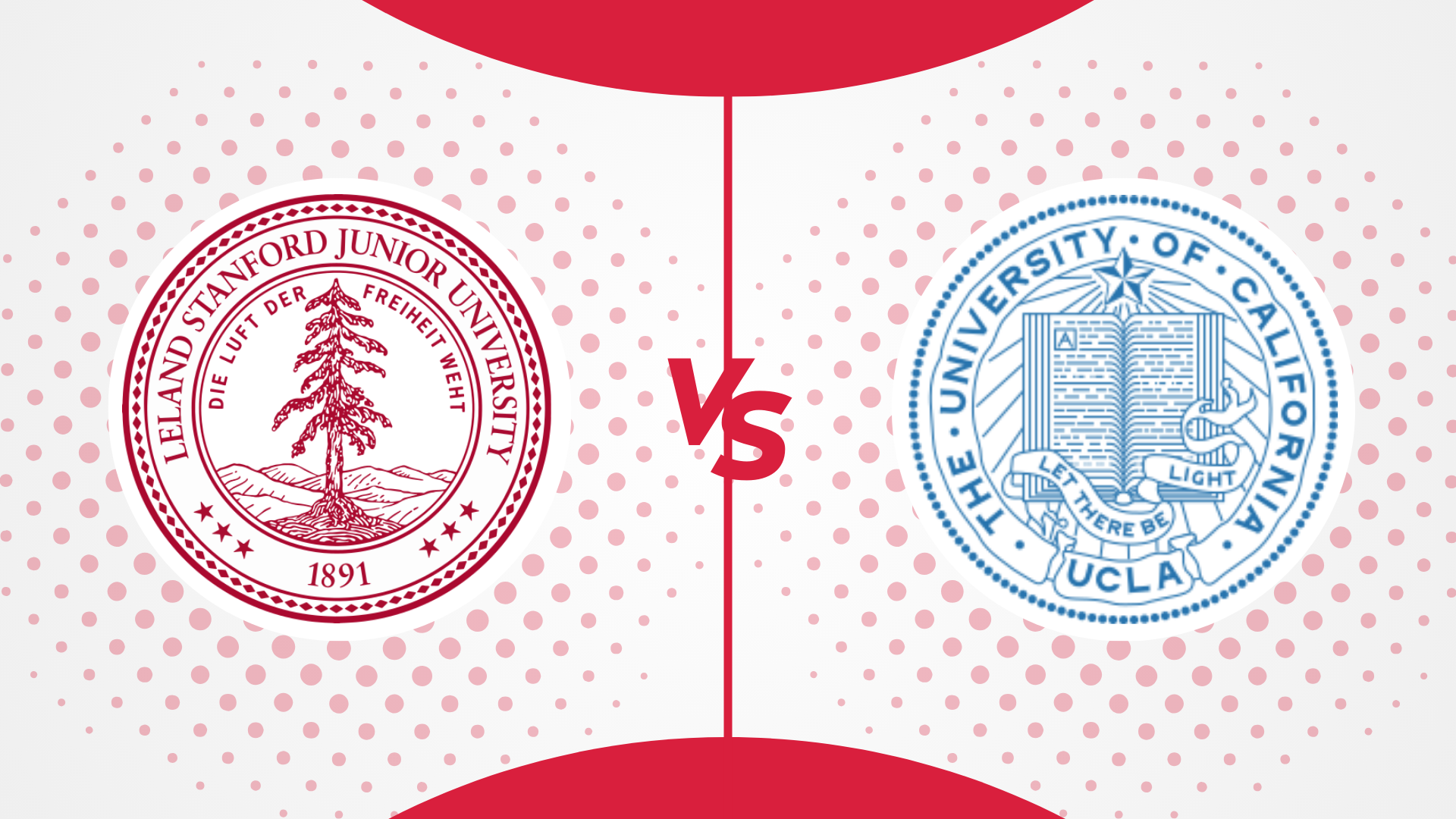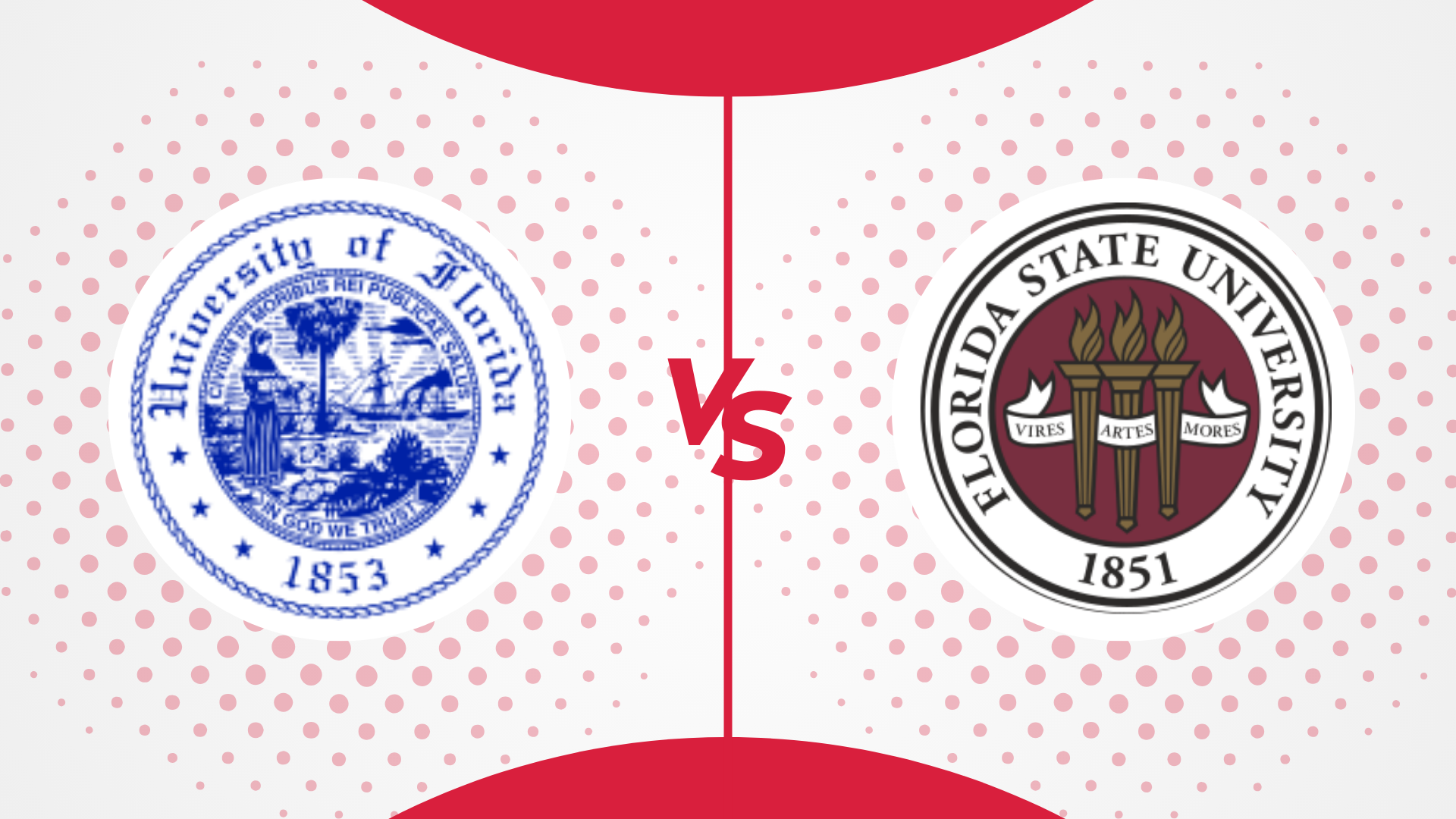If you are a student researching universities in the UK, Durham vs. Warwick is a difficult choice to make. Two highly renowned universities known for their excellence in varied areas of study, both schools offer cutting-edge facilities and world-class opportunities for academics and research.
Keep reading this article to get an in-depth comparison of these two UK universities across various parameters so that you can make an informed decision about a school best suited for your needs.
Here’s a quick look at the two universities
Durham University, one of the oldest and most prestigious institutions in the UK, offers a traditional academic experience and is particularly strong in subjects like Law, Humanities, and Theology. Its collegiate system creates a close-knit, community-oriented atmosphere.
The university is set in Durham, a small, beautiful city that’s part of a UNESCO World Heritage Site. It creates a unique, scenic environment where students live and study in close proximity. However, being located in a smaller city means limited access to large industry hubs and fewer nightlife or entertainment options, but the strong sense of community and academic rigour makes it ideal for students seeking a more focused, immersive experience. Durham consistently ranks high in national rankings, and its historic reputation carries significant academic prestige.
In contrast, the University of Warwick, known for its modern and innovative approach, ranks highly for business, engineering, and social sciences, with Warwick Business School particularly well-regarded. The sprawling, purpose-built campus is vibrant and diverse, offering students a wide array of social spaces, events, and activities and cutting-edge facilities like the Warwick Arts Centre.
Situated near Coventry and with strong industry links, Warwick is a hub for students seeking internships, placements, and networking opportunities. Its global outlook and focus on employability make it a great choice for those looking for career development alongside their studies. The modern, dynamic campus life and its emphasis on practical learning sets Warwick apart as a more career-focused and internationally connected university.
Overview of Durham and Warwick
Brief History and Background
Durham University
A collegiate public research university in Durham, England, Durham University is the third oldest university in England, after Oxford and Cambridge. It was founded in 1832 near Newcastle’s northern border of England. As a collegiate university, Durham divides its functions between the faculties and departments that handle academics and research and the colleges that provide residential arrangements and oversee the overall welfare of their students.
Durham is one of the premier universities in the UK, known for its programs in law, history, philosophy, economics, and other social sciences. While the university does have great science and engineering programs, its legacy is built primarily based on its qualitative disciplines. Durham ranks 6th in the country and 89th worldwide according to the Guardian League tables and QS WUR, respectively. Durham is also often compared to Glasgow, but the two are quite different.
University of Warwick
The University of Warwick is a public research university established in 1965 on the outskirts of Coventry. Also a member of the prestigious Russell Group, Warwick is one of the top ten universities in the UK, with a global reputation for its programs in mathematics, statistics, economics, film studies, and engineering, and those offered by the Warwick Business School. With a student body of about 29,000, the university has created a name for itself when it comes to teaching, research and innovation, and its networks with local businesses and industries.
Key Statistics and Rankings
Here is a table comparing the key stats and ranks when it comes to the University of Warwick vs Durham University.
| Durham | Warwick | |
| Campus | Durham, England | Coventry, England |
| Ownership | Public Research University | Public Research University |
| QS World University Rank 2025 | 89 | 69 |
| Times Higher Education Rank 2025 | 172 | 106 |
| Guardian National Rank 2025 | 6 | 8 |
| Undergraduate Student Body | 17,765 | 19,440 |
| Graduate Student Body | 4,600 | 9,630 |
| % of International Enrollment | ~ 30.8% | ~37.68% |
| Average Undergrad Acceptance Rate (Source: UCAS) | Around 13% | Around 13% |
| Student to Faculty Ratio | 13:1 | Around 10:1 |
| Number of Undergraduate Programs | 200+ | 300+ |
| Number of Graduate Programs | 100+ | 250+ |
| Number of Athletic Teams | 550 teams across 18 sports | Over 65 sports clubs |
| Number of Clubs and Student Organizations | 200+ | 250+ |
| School Colour | Palatinate Purple | Aubergine |
Durham vs Warwick: Academic Comparison

As a prospective student, the first aspect of comparison when looking at Warwick vs Durham is academics. While Warwick finds a spot in the list of the top 10 universities in the UK, Durham is deemed equally prestigious despite its ranking, and is known for its legacy, its collegiate system, and its programs in humanities, social, and natural sciences.
In this section, we will be looking at both Warwick and Durham, and analyse their undergraduate and graduate courses, choices and flexibility, ranking, degrees and class sizes, academic calendars, research facilities and budgets, all of which can become important factors in deciding between the two universities.
Undergraduate Programs
Focus Areas and Program Options: Both universities are renowned as outstanding centres of both teaching and research. As public universities, both Durham and Warwick are funded by the state and have various departments that offer a wide range of programs. Durham offers over 200+ undergraduate programs while Warwick has over 300 programs to choose from, across a range of disciplines that include STEM, social sciences, business, management, arts, and the humanities.
Contrary to universities in the United States, both Durham and Warwick do not have a General Education or a Core Curriculum component. The general understanding is that students/ applicants have a basic, functional knowledge of the foundations before entering university. If unprepared, students typically apply to a foundation year before applying for a 3-year bachelor’s degree in the United Kingdom.
Moreover, the choice of major is made while applying to the university, both in the case of Durham and Warwick. This is typical of most UK universities, unlike the United States, where majors are typically declared in the sophomore year. Some universities allow you to switch majors depending on seat availability, but the process is akin to reapplying to a new program.
Reputation: Generally speaking, the University of Warwick is better known for quantitative subjects, including engineering, mathematics, accounting and finance, business, and economics, while Durham has a better reputation for qualitative subjects, such as philosophy, history, English literature, philosophy, anthropology, psychology and others. If you are looking at their overall ranking, Durham ranks 6th in the country according to the Guardian league table, while Warwick ranks 8th. Globally, Durham ranks 89, while Warwick ranks 69 (QS WUR 2025).
Admission Criteria and Standardized Tests: The biggest advantage of applying to UK universities for your undergraduate education, be it Durham University, the University of Warwick, or any other school, is the University and Colleges Admission Services, also known as UCAS. As a prospective student, you must log in to UCAS and apply to up to five different UK universities with just one application.
Admissions criteria for most courses are GCSE (UK high school) scores, A levels, or IB scores. Both Warwick and Durham also have a long list of international equivalents for students applying from outside the UK. The scores/ grads/ subject requirements vary with the program of your choice. That said, most courses require applicants to have Grade C / Grade 4 or above in both GCSE English Language and Mathematics, or an equivalent qualification.
Standardaized tests are not mandatory in both these England universities. However, SAT or ACT scores are recognised and can be submitted as a measure of meeting entry requirements. International students are required to take up IELTS or TOEFL or any of the accepted tests as a proof of English language proficiency. The minimum score required also varies with the program in both universities.
Besides these academic qualifications, your personal essay and letters of recommendation also carry significant weight in your application.
Class Size: While the class sizes can vary quite significantly across departments, Durham has a student to faculty ratio of about 13:1. In the University of Warwick, the average class size is around 20, but this can also skew noticeably. For instance, most courses offered by the Warwick Business School have close to 100 students. The student to faculty ratio in Warwick is about 10:1.
Top Majors:
| Durham University | University of Warwick |
|
|
Graduate Programs
Graduate Program Options: Before we analyze the results, there are two important aspects to keep in mind when researching master’s programs in the United Kingdom. Firstly, most typical master’s degrees in England, Scotland, Wales and Northern Ireland take only one year to complete, as opposed to the 2-year master’s degrees in most other countries. Secondly, when researching your degree, it is important to note whether it is a taught masters or a research master’s program. As the name indicates, taught master’s programs are primarily composed of coursework, lectures and exams, with some amount of research work. MRes, on the other hand, has minimal coursework, with the majority focus on a single research project. For the sake of comparison, an MRes can be treated as a mini PhD.
Durham University has over 100 taught and research master’s courses, while Warwick has over 250 graduate programs. By many metrics, Warwick has a better reputation, especially on the global level, and it has found a spot on the list of top 10 universities in the UK. However, looking past the rankings, both are regarded as top universities offering a wide range of taught and research degrees. They are at par when it comes to physical sciences, biosciences, and the arts. Warwick has a better reputation when it comes to sustainability sciences, economics and business masters, and engineering. In fact, the Warwick Business School is one of the top 20 in the world when it comes to Masters in Marketing, Business Analytics, Management, and Finance. Durham is better suited for law, public policy, education, and social sciences. The Durham Law School ranks 8th in the UK and 48th in the world when it comes to law and legal studies.
In terms of the graduate student body, Durham is much smaller than Warwick. While Durham has about 4,600 grad students, Warwick’s graduate population is more than twice the size of its northern competitor.
College Admissions: Both universities are fairly evenly competitive when it comes to admissions. However, the acceptance rate is indicative of undergraduate admissions. At the master’s or doctoral level, the number varies significantly across departments. The general minimum admissions criteria in both universities for a master’s program is
- an upper second-class honours degree from a recognised university,
- Personal essays, letters of recommendation, audition tapes and portfolios (if required)
- standardised English language tests for international students.
Standardised graduate tests such as GMAT or GRE scores are not mandatory in both universities unless specifically asked for by the department/ program that you are applying to. Some master’s programs or professional programs might also require you to have some work experience. For instance, the MBA at WBS requires all its applicants to have a minimum of 3 years of experience before applying.
Top Graduate Degrees:
| Durham | Warwick |
|
|
Overall and Subject Ranking
Here are two tables that compare Durham University vs Warwick based on overall rankings and individual subject metrics.
| Durham University | University of Warwick |
| Guardian League Table 2025: 6 | Guardian League Table 2025: 8 |
| Times Higher Education WUR: 174 | Times Higher Education WUR: 106 |
| QS WUR 2025: 89 | QS WUR 2025: 69 |
National Subject Rankings (Source: Guardian Subject Rankings 2025)
| Subject | Durham | Warwick |
| Accounting and Finance | 5 | 2 |
| Biology | 4 | 19 |
| Business and Management | 14 | 4 |
| Chemistry | 8 | 34 |
| Computer Science and Information Systems | 11 | 21 |
| Economics | 4 | 8 |
| Engineering | 6 | 19 |
| Law | 6 | 11 |
| Mathematics | 14 | 8 |
| Media and Film Studies | N.A. | 5 |
| Psychology | 15 | 14 |
| Sociology | 13 | 17 |
While the rankings can give you a general idea of where the universities stand, they cannot be the sole deciding factor on choosing a school. It is also important to note that the way that these rankings are calculated vary with institutions. For example, in the Guardian scale, Durham overtakes Warwick as the universities are placed in the 6th and 19th ranks, respectively. However, if you look at QS Subject rankings that give you global positions, Warwick supersedes and is in 190th place globally, while Durham is 290th.
It goes to show that your decision cannot hinge upon just these metrics alone but is to be based on a thorough understanding of the curricula, the teaching styles of professors in your department, their location, their networking opportunities and a score of other factors that are specific to your career needs.
Generally speaking, Warwick has a better reputation for quantitative fields, while Durham has a rich history and legacy when it comes to the qualitative areas of study. Ultimately, when it comes to academics, one cannot go wrong when choosing between these two best universities in the United Kingdom.
Constituent Schools
Durham University is constituted of 27 academic departments that are divided into
- Durham Business School
- Faculty of Arts and Humanities
- Faculty of Sciences
- Faculty of Social Sciences and Health
Note: Durham no longer has a medical school. The original Durham University School of Medicine, Pharmacy and Health was transferred to Newcastle University in 2017. However, Durham University continues to offer health-related programs at the bachelor’s and master’s levels. Their MA in Medical Humanities is a highly sought-after program for those interested in the non-clinical side of the health industry.
The University of Warwick is essentially divided into three faculties under which there are over 40 departments, institutes and research centres.
- The Faculty of Arts
- Faculty of Science, Engineering and Medicine
- Faculty of Social Sciences (that also encompasses the Warwick Business School)
In addition to the three faculties, the university also houses over 30 cross-faculty centres, projects and initiatives.
Research Opportunities
Both the University of Warwick and Durham University are members of the prestigious Russell Group of Institutions in the United Kingdom. The Russell Group comprises 24 world class research intensive public universities that are also known for their academic rigour and excellence, and their connections to their local communities.
Durham University is home to over 80 research centres and institutes covering a wide range of disciplines including the Wolfson Research Institute for Health and Wellbeing, Institute for Data Science, Centre for Commercial and Corporate Law, Durham Centre for Bioimaging Technology among others. You can access the full list here. The university is also world-renowned for its research in law, sustainability, archaeology, business, and neuroscience.
Research opportunities at Warwick University also abound. The university is home to over 65 research centres under different faculties and is also known for its cross-faculty and interdisciplinary work. This includes the Centre for Research in Economic Theory and its Applications, the Centre for Mechanochemical Cell Biology, the Warwick Analytical Science Centres and many more. Considered more research intensive than Durham in many disciplines, Warwick is one of the leading universities in the UK due to its state of the art facilities and connections to industry.
Key Dates for Application
In this section, we will be looking at the key dates for application and admission into undergraduate and master’s programs to get a sense of the timeline. It is also recommended that you verify with the specific department / school that you are applying to, just to ensure they do not follow a different cycle.
| Important Dates | Durham | Warwick |
| UCAS Applications Opens on | 3 September 2024 | 3 September 2024 |
| UCAS Application Deadline | 29 January 2025 | 29 January 2025 |
| Course Begins | August/ September 2025 | August/ September 2025 |
| Master’s Application Deadline | Rolling admissions. Students who require a visa are expected to apply by July | |
| Decision Posted in | 6 – 8 weeks after receiving the application | Latest by 14 May 2025 |
| Deadline to accept offer of admission | Mid-August | July 31 |
| Average Acceptance Rate | ~ 13% | ~ 13% |
Some important points to be considered when applying to Durham or Warwick:
- Unlike American universities most UK universities do not have Early Action or Early Admission Decision pathways.
- Warwick and Durham, like most UK universities, have rolling admissions, especially for their graduate programs. Applications are accepted throughout the year and is therefore recommended that aspirants apply at the earliest.
- All undergraduate applications for both Durham and Warwick go through University and Colleges Admissions Services or UCAS. The advantage is that you can apply for up to five colleges with just one application. The application fee is about £30.
- There is no common application portal for graduate level applications. They can be applied to directly, from the university/ department websites.
Academic Calendar
Both universities follow a trimester system where the academic year is divided into three terms. The Autumn Term runs from October to December, the Spring January to March and the Summer April to June. At Durham, these terms are named Michaelmas, Epiphany, and Easter Terms respectively.
Warwick vs Durham: Campus Life and Environment

From their location to the campus culture, Durham and the University of Warwick offer varied experiences to their students. Let us take a look at some of the other factors that can make a prospective student prefer Durham to Warwick or the other way around.
Location
One of the key factors that can help you decide is the location. Durham is located near the northern border of England, closer to Newcastle. It is closer to Edinburgh than it is to London. It is a college town and is also a UNESCO World Heritage Site. The University of Warwick is situated in the outskirts of Coventry, just about 20 miles from Birmingham and about 100 miles from London. Durham is slightly colder when compared to Coventry but also has a marginally lower cost of living when compared to Coventry.
Campus Size and Facilities
The Durham campus spans about 640 acres that accommodates the academic and research facilities and their 17 residential colleges. The campus also includes the 11th century Durham castle and the UNESCO world heritage site. The Queen’s Campus in the town of Stockton-on-Tees is also part of Durham University and it houses the Durham University International Study Centre. A mix of tradition, legacy and modernity, the campus provides a range of facilities including libraries, gyms, sports and creation centres, housing, dining halls in all its colleges.
The University of Warwick has a 720 acre campus on the outskirts of Coventry, satellite campus in Wellesbourne and a central London base at the Shard. The original buildings of the Main campus carry the distinct marks of 1960s architecture. The campus houses all the main student amenities, including most of the halls of residence and the Students’ Union building. It is home to the Warwick Arts Centre, and the recently opened Sports and Wellness hub, among all the other required amenities for its students.
Student Activities and Organizations
Even though most UK universities are less athletically inclined when compared to the USA, Durham has an immense culture of sports and athletics. Over 75% of the student body is engaged in some sport or physical activity and the university enables 700 teams to participate in 18 different sports. It is Britain’s top Team Sport University and has invested over £47 million in athletic facilities since 2012. The university is also globally renowned for its Department of Sport and Exercise Sciences. In addition to sports, the university also allows over 200 clubs and organisations for their students to explore their passions beyond academics.
The University of Warwick houses over 65 sports clubs that are run entirely by the Student Union. The university also recently opened a Sports and Wellness Hub to encourage more of its students to be physically active. The university also has close to 300 student organisations for various extracurricular interests.
Housing and Accommodation
The University of Durham is a collegiate university comprising 17 residential colleges across the campus that house undergraduates, postgraduate students, and even some members of faculty. These colleges are at the heart of Durham campus life. They help build communities, lifelong friendships and even professional networks. Each college is composed of a diverse group of staff and students from different disciplines.
About 40% of Durham students are accommodated on campus while the university aims to increase it to about 55% by 2026-27. First year undergraduates are guaranteed an offer of university accommodation. Even students who choose to live off campus are still assigned colleges. They can access all other amenities a college offers, except the housing facilities.
Unlike Durham, Warwick is not a collegiate university. However, the university does offer a wide range of accommodation options for both its undergraduate and postgraduate students through its numerous residence halls and apartments. Rents typically cost anywhere between £120 and £250 per week, depending on the facilities. Students who choose to live off campus typically choose Coventry or nearby Kenilworth or Leamington Spa, areas that are well connected to the university campus.
Durham vs Warwick: Financial Aspects

Besides academics and campus amenities, another important aspect in the Warwick vs Durham debate is the cost involved. They are both public universities and are generally more affordable when compared to the privately owned ones.
Another significant advantage of UK universities is that a bachelor’s degree usually takes only 3 years to complete (except in Scotland) and most masters’ degrees can be finished in 1 year. Compared to the US, Canada, Australia, New Zealand, or any other country, a student studying in the UK saves up to a year’s worth in tuition.
Both Durham and Warwick have extensive options for financial aid, for both home and international students. It is important to look into scholarships and bursaries allocated for specific colleges/ departments to choose the most suitable option.
| Annual Rates | Durham | Warwick |
| Tuition (Bachelor’s) | UK students – £9,250 International – £25,000 |
UK students – £9,250 International – £24,000 – £30,000 |
| Tuition (Master’s, not including professional programs) | UK: £8,000 – £29,500 International: £19,000 – £35,000 |
UK: About £24,000 International: £28,000 – £42,000 |
| MBA Tuition | About £35,000 | £57,500 |
| Housing (On-Campus) | £6,500 – £10,000 | £6,000 – £12,000 |
| Food (Meal Plan) | £1,578 (10 meals/ week) | About £1,700 |
| Off-Campus Housing | £9,000 – £11,500 (rent) | £7,000 – £12,000 |
| Types of Financial Aid | 1. Scholarships 2. Grants 3. Bursaries 4. Loans (mainly for US citizens) Awarded based on academic merit, sports, or financial need |
Scholarships and bursaries awarded based on merit or financial need. |
| International student scholarships |
|
|
| Admission Decisions | Need aware | Need aware |
Here are a few important points to be kept in mind.
- The tuition rates are for an academic year composed of three terms and the typical course load. Choosing extra courses/ summer programs will add to these amounts.
- The tuition fee varies, if you are doing a Placement Year or a Study Abroad year.
- The tuition fee amounts in the table are indicative of only the cost of attendance. It does not include books, club fees, and other expenses. International students can also avail the benefits of the NHS by paying a surcharge of £470 per year.
- As mentioned earlier, it is important to research into scholarships made available for specific programs/ colleges. Both these UK universities offer financial aid based both on academic merit and performance in sports. The need-based financial aid is called a bursary and is also open to both home and international students.
- Besides the university funded scholarships, international students can look into the British Council Scholarships, GREAT scholarships, Chevening, the Charles Wallace Trust, and the Commonwealth Scholarship options.
Durham vs Warwick: Career Prospects and Alumni Network

Considering the reputation and legacy of the two universities, and their extensive alumni networks, there is no doubt that a graduate of these schools will have numerous opportunities of their choosing after graduation. The academic rigour and culture of research in these two universities create a pedigree that recruiters often compete to get for their organisations.
Employment Rates
As two of the highly reputed universities in the UK, both Durham and Warwick have high graduate employability rates and are ranked highly on the employability scale. The Guardian League Table scores Durham with 91 and Warwick with 90 on a scale of 100 when it comes to career after 15 months of graduation. While Durham has a graduate employability rate of about 92% (15 months after graduation), Warwick graduates are the fifth most targeted by the UK’s top graduate employers.
Notable Alumni
Durham has over 230,000 alums across the globe while Warwick’s alumni network extends across a community of 293,000 people who are some of the brightest minds in science, technology and business.
Notable Alums of the University of Durham
- Nasser Hussain, Cricketer
- Harold Events, Journalist and Author
- Charlotte Riley, Actor
- Justin Welby, the 105th Archbishop of Canterbury
- Tom Rosenthal, Singer and Songwriter
Notable Alumni from the University of Warwick
- Stephen Merchant, Comedian, Actor and Writer
- Oliver Hart, Economist
- Baroness Amos, Politician and Diplomat
- Sting, Musician and actor
- Anil Ambani, entrepreneur
Career Services
From internships to employment opportunities, organisations and recruiters seek students and graduates of top notch institutions like Durham and Warwick. In both universities, the career centress for strategy and success assist their students to gain practical experience, build networks and communicate their aptitudes and skill sets to prospective employers. They also play an instrumental role in building leadership skills and specialised skills that are essential to a workplace.
In both universities, the career centre connects students to internship opportunities and prospective employers through seminars, job fairs, and numerous other on-campus events. Their goal is to clarify career aspirations, identify opportunities, and offer support at every stage of career development.
Both universities also have options for placement year and apprenticeships wherein students can gain practical experience either through summer internships or year-long placements.
Durham University vs University of Warwick: Conclusion

Deciding between Warwick and Durham involves considering various factors such as academic strengths, campus life, financial implications, and career prospects. Both universities offer unparalleled opportunities, but your decision should align with your personal and professional goals.
Here is a list that highlights the key similarities between the two universities –
- They are both fairly evenly matched when it comes to reputation.
- When looking at full-time programs, both offer primarily 3-year undergraduate and 1-year postgraduate programs.
- They both provide a wide range of options to choose from, at both undergraduate and graduate level.
- Both universities do not have a core/ general curriculum and typically expect their students to dive into their majors from the first term. They both also offer foundation year programs for international students who require an additional year of study to transition smoothly into the English university system.
- Both universities are members of the prestigious Russell Group, known for their academic and research excellence.
- Their application dates and processes are very similar, especially at the undergraduate level, since it is through UCAS.
- Both follow a trimester system.
- Both offer numerous scholarships, bursaries, and accommodation options for their students – both domestic and international.
Here is a list that highlights the key differences between the two universities –
- Durham has a longer history and legacy while Warwick is more modern and has a greater global reputation.
- Durham has a better ranking and reputation for history, philosophy, social sciences, english literature, law, and other qualitative disciplines while Warwick is better known for its quantitative subjects, especially relating to business management and analytics.
- On the global scale, Warwick ranks 69th while Durham 89th. (Source: QS WUR 2025).
- Durham’s student to faculty ratio is marginally higher (13:1) when compared to Warwick (10:1).
- Warwick has a school of medicine and while Durham has numerous programs related to health, it does not confer medical doctor degrees.
- Durham follows a collegiate system like Oxford or Cambridge, where all of its students are assigned to one of its 17 colleges. This helps students develop a sense of community and network, and provides a more traditional UK college experience. Warwick does not have a collegiate system.
- Warwick is a much larger university when compared to Durham.
- When it comes to location, Durham is located near the northern border of England, near Newcastle, and is closer to Edinburgh than to London. Warwick is just about 20 miles from Birmingham and 100 miles from London.
- If you are interested in athletics, Durham is known as an athletic university in the United Kingdom.
Considering their reputation, the ultimate call rests on whether the course curriculum and the learning outcomes meet your career plans. The most significant part of your research is to compare courses, syllabi, electives, faculty and research facilities of your preferred degree program, speak to current students, and then decide depending on which school better suits your needs.
We understand that becoming an international student can be very thrilling, but the prep and paperwork of it all can get overwhelming. The easiest way to reduce your stress is to sign up with TC Global.
We simplify international education, learning, and mobility through connecting students, universities, and a global community on a single platform where there are over 1000+ education providers and over 80,000+ courses.
Our platform enables students to study anywhere in the world in just a few steps. From search and discovery and finding the right course fit for you, to applications, visas and departure – we see you through it all.
To move forward with us, download our app or visit tcglobal.com and sign in to create an account on our student platform and onboard with us in quick, easy steps.! ?
Then simply set up a visit Calendly.com/tcglobal to pick a Relationships Team closest to you and choose a slot to meet with a Relationship Member. Be it Durham vs Warwick or any such debates, our experts will be with you every step of the way to help you decide.
Let’s shape your future together.
FAQs

Is Warwick better or Durham?
Both universities are generally seen as being at par with each other. Durham has the longer history and legacy while Warwick has the higher global ranking. The final answer to this question ultimately rests on your personal preferences.
Is Durham University prestigious?
Durham is one of the 10 ten universities in the United Kingdom, according to Guardian rankings and is a highly sought after university.
Is Warwick a prestigious university?
Yes, Warwick ranks 69th in the world and is also among the top 10 universities in the United Kingdom. The Warwick Business School is also one of the top schools in the country.
How many Indian students are there in Warwick?
About 38% of Warwick’s student body is international out of which about 700 students are from India.
Is it tough to get into the University of Warwick?
The university has an average acceptance rate of about 13%.
Why do Oxbridge rejects go to Durham?
Durham’s collegiate system is similar to that of Oxford and Cambridge. The university is also located on a world heritage site that replicates the old world charm of Oxbridge. Moreover, Durham is also known for its academic and research excellence, making it a popular choice among Oxbridge rejects.
What are some of the other universities in the same tier as Durham and Warwick?
Firstly, there is no official categorisation of universities into tiers in the UK. It is a perception, depending on their reputation, ranking, acceptance rates and many other factors. Just like ranking, tiers also cannot be commonly applied across departments.
That said, some of the other universities you can consider, depending on your choice of major, include Bristol, University of Glasgow, University of St Andrews, University of Manchester, University of Exeter, and the University of York. More ambitious choices would include London School of Economics (LSE), University College London (UCL) and Imperial College London.
You May Also Like

Compare more universities in UK
-

UCL vs LSE: How Do They Compare in 2025?
November 19, 2024 -

Nottingham University vs Nottingham Trent: How Do They Compare? [2025]
November 19, 2024 -

Glasgow University vs University of Edinburgh: How Do They Compare? [2025]
November 19, 2024 -

University of Edinburgh vs King’s College London: How Do They Compare? [2025]
November 7, 2024 -

King’s College London vs Imperial College London: How do they Compare [2025]
November 7, 2024 -

Durham University vs Glasgow University: How Do They Compare? [2025]
November 6, 2024 -

London School of Economics Vs London Business School: How Do They Compare? [2024]
October 26, 2024 -

London School of Economics vs King’s College: How Do They Compare? [2024]
October 11, 2024 -

LSE vs Oxford: How Do They Compare? [2024]
October 8, 2024 -

UCL vs Imperial: How Do They Compare? [2024]
September 30, 2024
















